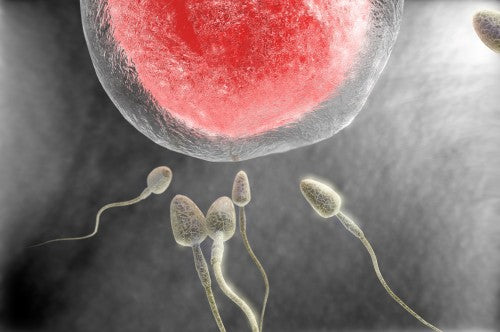
Chances Of Getting Pregnant With Low Sperm Count
What is Low Sperm Count?
If a couple has been trying to conceive a child for a while, they may become worried that the man might have a low sperm count. If this is a concern, he can go to the doctor for a sperm count and motility assessment.
Optimally, a couple will want the results of the assessment to show that the man has sperm count levels that are between 40 and 300 million sperm per milliliter of semen. A semen sample with less than 20 million sperm per milliliter is considered to have a low sperm count.
The Diagnosis of Low Sperm Count
Receiving a diagnosis of low sperm count can be very hard for any man to hear. It can affect his feelings about himself and his fertility and can make him less likely to want to have sex with his wife.
Discussing the issue openly with your partner will help overcome the mental aspect of the diagnosis. While not what you wanted to hear, at least you now know and can take steps to try and improve the situation.
Once you recover from the "sucker punch" feeling of the diagnosis, you can refocus and make changes that can improve the situation.
What You Can Do To Improve Your Sperm Count
The first thing they can do is avoid having sex too often or too far apart. If a man already has a low sperm count, having sex too often may deplete his sperm stores without giving his testes a chance to make more. Between 48 and 72 hours is an ideal time frame between sexual encounters while trying to conceive.
Next, the man should make sure that his testicles have room to regulate their temperature. Wearing underwear that is too tight, wearing pants that don't breathe, or spending too much time in hot baths or hot tubs may decrease the testicles’ ability to keep their temperature stable and maintain ideal sperm production.
A balanced, healthy diet and ensuring to stay well hydrated can also be useful in improving sperm count. Your diet should be high in good-quality fat and protein and low in sugar and junk food. Mild to moderate daily exercise can help improve a man’s overall health as well as his hormonal and testicle health. He should, however, avoid heavy or excessive exercise, especially while wearing restrictive clothing.
It is always a good idea for him to avoid alcohol, smoking, and street drugs while trying to conceive, as those can all harm sperm production as well.
Supplements for Improved Sperm Count
In addition to making these lifestyle changes, there are herbal fertility supplements like Fertilaid and Countboost for men that have an excellent track record of improving sperm health and sperm count. Trying a supplement like this is worth a try first.
Give the supplements three months to work to see how much they improve your sperm count. Visit your doctor if the improvement is not enough to help you get pregnant. The doctor can help you form a more in-depth medical treatment plan to help you get pregnant.
The doctor may recommend a more invasive and expensive course of action if none of the changes you've made helps improve the couple’s ability to conceive, and low sperm count is suspected,
IUI— Intrauterine insemination is typically the first procedure recommended. With this procedure, the sperm is sampled, cleaned, and inserted into the cervix to fertilize the egg.
The second option is IVF—in-vitro fertilization. This medical procedure is when the sperm is harvested and combined with the egg in a petri dish. The resulting fertilized egg is then implanted into the uterus. Both of these methods have relatively high success rates but also have a very high price tag.
A diagnosis of low sperm count doesn't necessarily mean that the couple will have to resort to these invasive procedures. With an overall improvement in the man's health, his sperm count may naturally go up. It only takes one strong, healthy swimmer to fertilize the egg.
Tags:
About Sperm
Quick links
Search
Contact Us
Shipping Information
Helpful Info
Terms of Service
Privacy Policy
Do not sell my personal information
Contact us
About us
BabyHopes.com is a family owned and operated business, opened in January 2001. We have been serving the trying to conceive community for over 20 years.


Leave a comment: